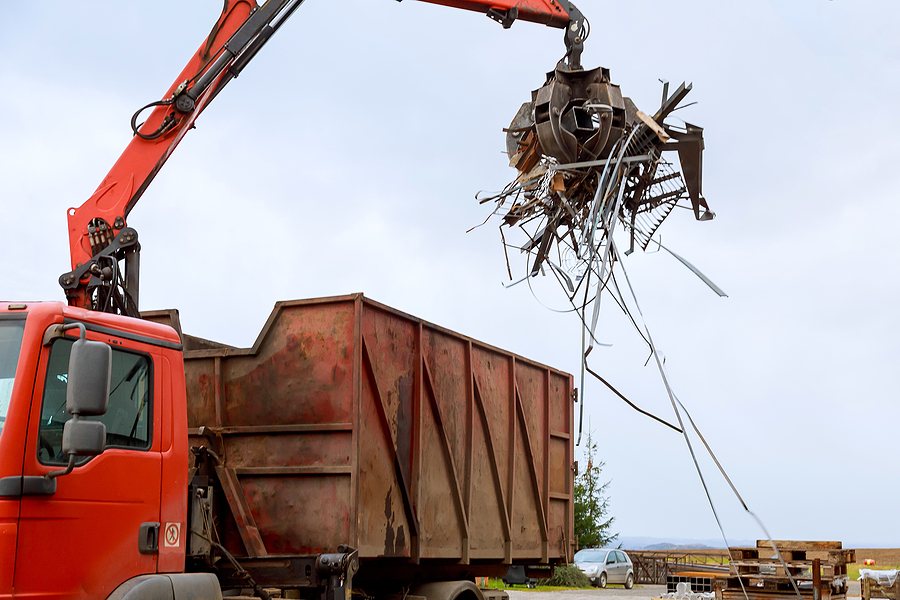Scrap metal recycling is not only an environmentally responsible practice, but it can also be a lucrative one if you know how to navigate the market. A critical step in this process is identifying a trustworthy scrap metal buyer who can provide a fair price for your materials. However, with numerous buyers in the industry, it can be a daunting task to discern which ones offer the best conditions and prices.
This blog post aims to equip you with pertinent tips and tricks to help you locate a reliable scrap metal buyer, ensuring that you get the most out of your scrap metal recycling efforts.

Looking for a Scrap Metal Buyer? Here’s What to Do
Know Current Scrap Metal Prices
The first step to take when looking for a scrap metal buyer is to understand how much your scrap metal is worth. Research current scrap metal prices to gain an understanding of the market. This knowledge will help you differentiate a fair offer from a bad one. Currently, prices for scrap metal are good, so you should be able to earn a decent profit at a local scrap yard. Consider recycling metals like steel, iron, aluminum, copper, and precious metal like gold and silver.
See Who’s Buying Scrap Metal Near You
Your next step in the scrap metal recycling process is to look around for potential buyers. Conducting an online search can help you narrow down your list of scrap metal buying businesses and metal recycling centers, as well as provide important information about their background and reliability. Furthermore, asking your friends or family members if they have any recommendations is another way to obtain trusted advice about metal recycling services in your area.
Ask Around for Some Free Quotes
Once you have compiled a list of potential buyers, it is always wise to request a quote from each one before making a decision. Doing so will allow you to compare and contrast the prices they offer for different metals as well as any other services they may provide. Additionally, make sure to inquire about their payment terms, delivery times, and customer service policies.
Look for Professional Credentials
It is also important to ensure the scrap metal buyer you select is properly licensed and insured. This serves as a guarantee that your materials will be handled appropriately and responsibly, as well as protecting you against potential losses or damages. To ascertain whether a buyer meets these requirements, it may be beneficial to check with local government offices for any applicable regulations governing scrap metal recycling.
Read Customer Testimonials
Lastly, an effective way to assess the reliability of a potential buyer is to read reviews left by past customers. Online review platforms such as Google Reviews and Yelp can help you gain insight into the quality of products and services provided by a particular scrap metal buyer. Moreover, if there are unsatisfied customers in the mix, be sure to take note of their experiences and weigh whether they should influence your decision.
Inquire About Freebies
Be sure to ask about any free amenities like quotes, free junk car removal, free scrap haul away, freight weighing, and so forth. You never know which free service might be the final deciding factor in your decision to sell your scrap metal!
In Conclusion
In conclusion, locating a reliable scrap metal buyer requires a mix of diligent research, careful comparison, and keen attention to detail. Knowing the current scrap metal prices, seeking recommendations, comparing quotes, verifying professional credentials, and checking customer testimonials are all key steps to ensure you find the most trustworthy and fair buyer for your scrap metal recycling needs. By putting these tips and tricks into practice, you can navigate the sometimes complex scrap metal marketplace with confidence and success.
Are you ready to make some fast cash for your valuable scrap metal? Contact us at 317-244-0700 for professional and hassle-free scrap metal recycling services in Indianapolis, Indiana. We pay cash on the spot for all scrap metal and junk!
Related Posts:
Scrap Metal 101: What You Need to Know
How Does Metal Recycling Benefit Everyone?
7 Tips for Identifying Quality Scrap Metals
